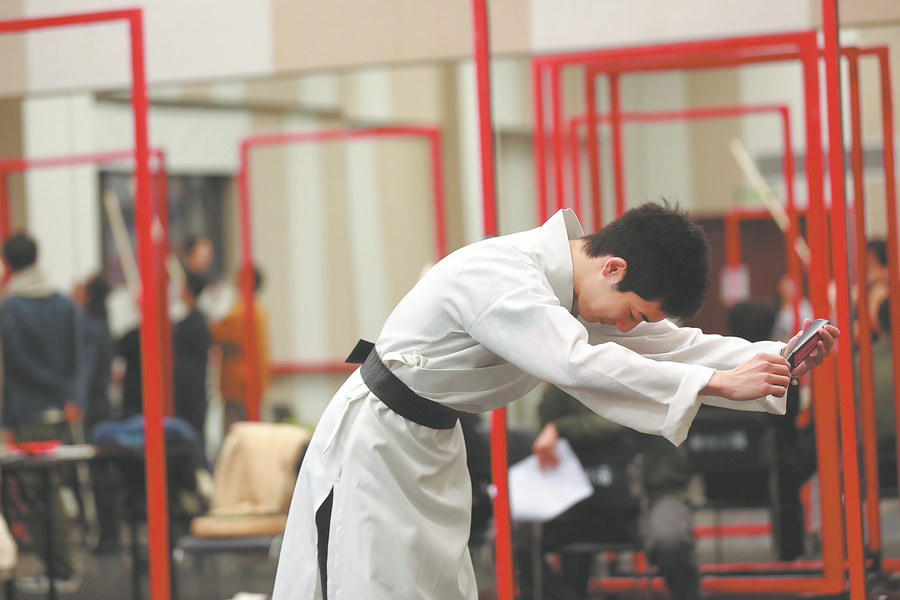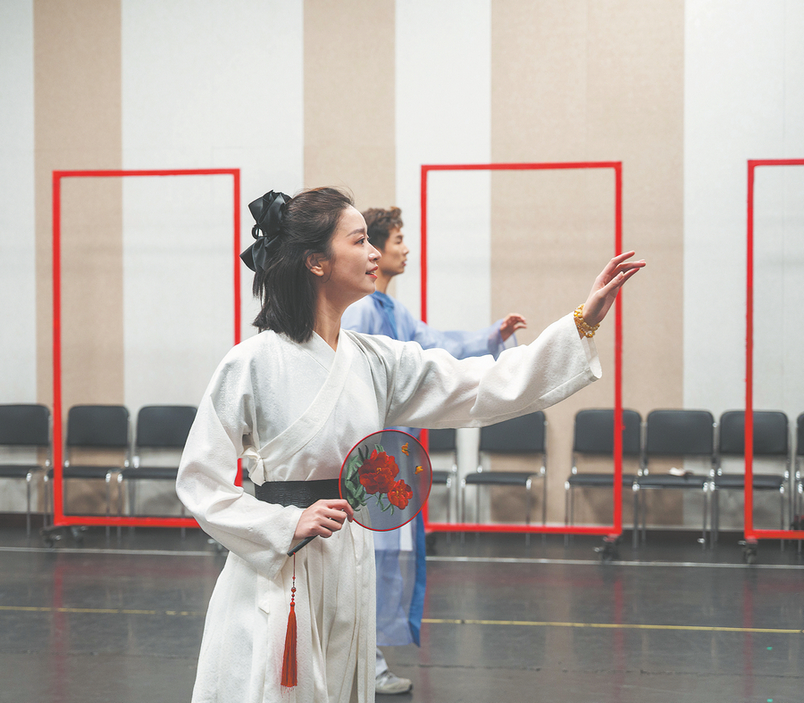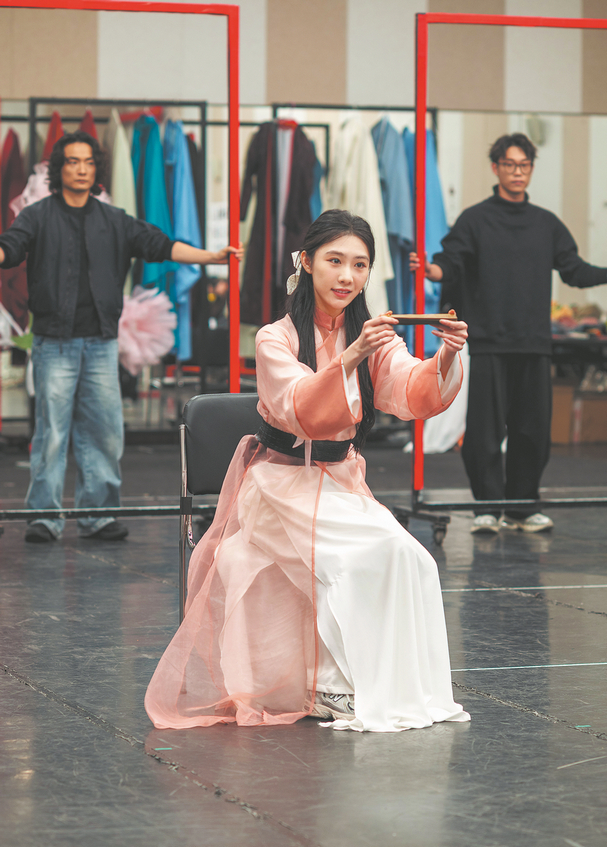

As a director, Gao strives to translate the ethereal quality of the dream world onto the stage. "The challenge is to bring the intangible to life, to make the audience feel as if they, too, are stepping into a dream," she says.
To achieve this, she uses modern technology — digital projections, soundscapes and lighting — to enhance the dreamlike atmosphere.
The set is minimalist, almost devoid of objects, as though the characters are floating in a space that defies physical boundaries.
Shifting lights and projections transform the stage, blurring the line between the world of the living and the realm of dreams. Du's dream world is one of fleeting beauty: flowers bloom and wither, figures materialize and dissolve, and a sense of longing permeates the air, palpable yet untouchable.
Du is often seen as a passive character: one who falls in love, dies of unrequited passion, and is rescued by a man. But in Gao's interpretation, Du is far more than that. She is not merely the object of love; she is its creator.
"For Du, the dream is her escape, her refuge. It is a space where her desires are not just fantasies, but a form of truth — truths that society would not acknowledge, but that she knows to be real. It's a world where she can love freely, unbound by family, duty or society's moral codes," explains actress Zhou Xuan, who plays Du.
Zhou adds that Du's emotional journey of self-realization resonates with contemporary audiences, particularly in an era when love and relationships are constantly evolving.
"Du's ability to transcend the limitations placed on her as a woman and to choose her own path through her dreams and desires speaks to the larger conversations about self-expression, identity and the search for authentic connections in today's world," she says.
Du's death is central to her story. But instead of simply succumbing to the pain of unrequited love, Du's death represents the transcendence of love beyond the physical world. In her dream, she is both alive and dead, navigating the space between life and death, between reality and the intangible.

"This idea that love is not confined to the body, that it can transcend even death, was a revolutionary concept at the time," Gao says.
For Gao, the theme of death holds personal significance. In high school, she grappled with a deep fear of death. The idea that life might ultimately dissolve into nothingness haunted her, leaving her questioning the meaning of existence. As the college entrance exams approached, she even found herself doubting the value of studying.
It wasn't until Gao entered university that a seemingly small moment shifted the trajectory of her life. One day, while carrying two heavy bags of groceries, she passed by a theater club's welcome performance. Without much thought, she entered and sat in the front row. After the show, she stayed behind, watching her peers break down the set with dimmed lights, folded props and coiled cables. One of them casually asked: "Want to grab some instant noodles? I'm starving."
That ordinary scene of cleaning up after the show struck Gao with an overwhelming desire to become part of this world. "It was as if I had stumbled into my own 'garden', just like Du Liniang in The Peony Pavilion, where an unexpected space changed the direction of my life," Gao recalls.
"To me, the play is about belief in the unseen, the power of dreams to shape our reality," Gao says. "In this production, I want to invite people to step into a dream themselves, where anything is possible."
Contact the writer at chennan@chinadaily.com.cn
